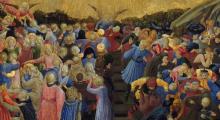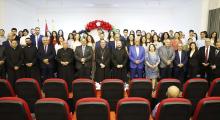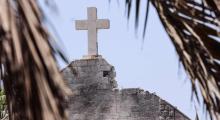Issued by the Catholic Center for Studies and Media - Jordan. Editor-in-chief Fr. Rif'at Bader - موقع أبونا abouna.org
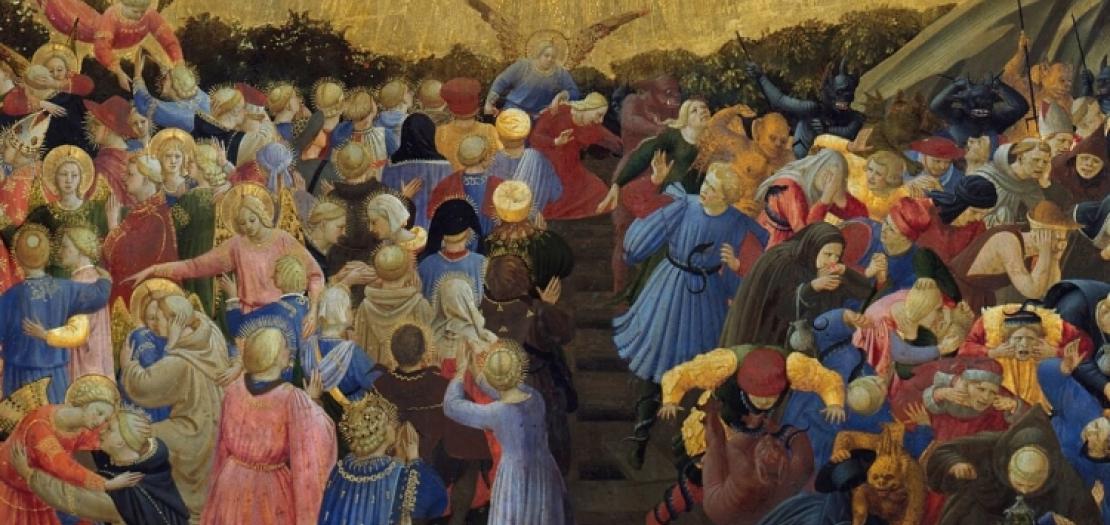
Following is the text of the meditation by His Beatitude Cardinal Pierbattiasta Pizzaballa, Latin Patriarch of Jerusalem, on the 21st Sunday of Ordinary time, dated August 23, 2025:
The central theme of today’s Gospel (Luke 13:22-30) is that of salvation.
Jesus is on his way to Jerusalem, passing through towns and villages. On the way, a man asks him: “Lord, are there few who will be saved?” (Luke 13:23) Once again, Jesus’ answer goes beyond the question: it is not important how many are saved, whether they are few or many. What is important is to be saved.
And, as always, there is something paradoxical about salvation that does not fit the mold of our human logic and that Jesus allows to shine through in his account, which he offers as an answer, full of paradoxes.
There is a narrow gate (“Strive to enter through the narrow door”, (Luke 13:24) yet it brings in many people, from east to west, from north to south (“people will come from the east and the west and from the north and the south”. (Luke 13:29)
There are some who seem to have all the qualifications to enter (“You will say, We ate and drank in your company”, (Luke 13:26), and yet remain outside (“I do not know where you are from” (Luke 13:27)
There are last who will be first, and first who will be last. (Luke 13:30)
We dwell on only one particularity in this text, namely the door, and its closing.
Many, Jesus says, will try to enter, but they will find the door closed (“many, I tell you, will try to enter and will not be able”. (Luke 13:24).
They will knock, but the door will not open. One might expect that the reason for the closed door is time: At some point the door will close and, those who are late, will be left outside. But that is not the case.
Those who arrive find the door closed and knock, and it is not opened to them because it is too late. For it is never too late to enter, and there is always an extra chance.
The door is not opened to those who think they deserve it, who take it for granted that they have the right to it.
“We ate and drank in your company, and you taught in our streets.” (Luke 13:26) For those, who think they have the assured ticket, the door remains closed. And not out of some kind of revenge, not to score points, but because salvation is given by grace, and only those who know they don’t deserve it receive it.
We will find an example of this later in the Gospel of Luke, in chapter 23. Jesus is on the cross, and one of the two evildoers, who were crucified next to him, asks to be remembered when he is in His kingdom. Somehow, he knocks on the door. He has no merit; he seems to be way past the deadline. And yet the door opens for him: “Today you will be with me in paradise”. (Luke 23:43)
So the door is not narrow because we have to earn entry through works of righteousness, through great asceticism. It is simply a matter of recognizing that we are small and poor. All we are asked, like the crucified evildoer, is admit our sin and our need for redemption: That is the ‘password’ that opens the door.
Jesus calls those who remain outside the door “evildoers”. (Luke 13:27) However, the text does not suggest that they have done anything wrong. The injustice that condemns them to remain strangers to the Lord is precisely that of thinking they are righteous. It is the only unrighteousness that prevents salvation.
That is why Jesus says to them the weighty words, “I do not know where you come from”. (Luke 13:27). I don’t know you, you don’t belong to my kingdom, you don’t share my logic, my way of seeing life, and living faith.
Those who are far away, who come as the poor without merit, they will sit at the table of the kingdom.
From the east, from the west, from the north and from the south. (Luke 13:29): that is, from everywhere, because any starting point is good for approaching the door that opens to the banquet of the kingdom.
Provided that we remain like the thief on the cross in chapter 23, who can only ask for what can only be gratuitous, what can only be donated.
+ Pierbattista
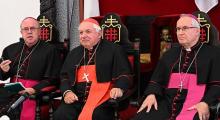 Cardinal Jean-Marc Aveline: "When all hope seems to disappear in Holy Land, hope of Christ’s resurrection remains"
Cardinal Jean-Marc Aveline: "When all hope seems to disappear in Holy Land, hope of Christ’s resurrection remains"  Ulster University, the American University of Madaba sign strategic MoU to advance global health innovation
Ulster University, the American University of Madaba sign strategic MoU to advance global health innovation 

